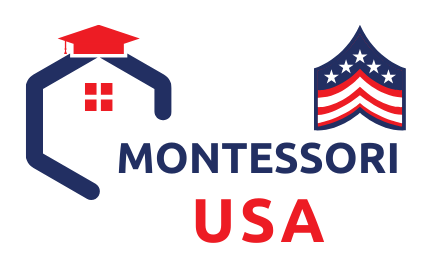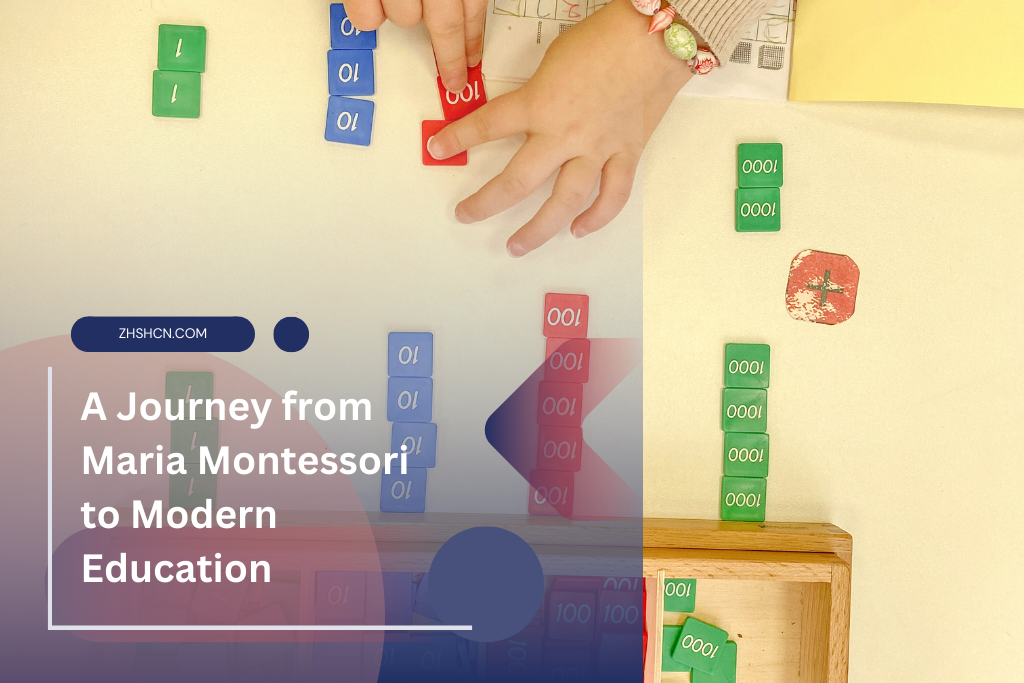In a world where education is the cornerstone of society, understanding various teaching methodologies is crucial. One such method that has stood the test of time is the Montessori Method, pioneered by Maria Montessori. This method has shaped the lives of many children and the education system at large.
Key Takeaways
- Understanding who Maria Montessori was and her contribution to education.
- The inception and evolution of Montessori schools.
- The Montessori Method’s impact on child development and modern education.
- Real-world application of Montessori principles in various educational settings.
Who Was Maria Montessori: The Brain Behind the Method
Maria Montessori, born in 1870 in Italy, was a visionary educator and the brain behind the Montessori Method of education. Her approach was revolutionary during her time, focusing on fostering a child’s natural desire to learn rather than traditional rote learning.
Early Life and Education
Maria Montessori was a trailblazer from a young age. She pursued a medical career, a field dominated by men during her time. Her journey in education began when she started working with children with disabilities. Through her observations, she developed materials and methods that later formed the foundation of the Montessori Method.
The Birth of the Montessori Method
The Montessori Method was born out of a combination of Maria’s medical background and her observations on children’s learning processes. She opened the first Montessori school, Casa dei Bambini, in 1907, the stepping stone for the Montessori education system.

Montessori Schools: A New Wave of Education
Montessori schools brought a fresh perspective to education, focusing on a child-centered approach. These schools were designed to cater to the individual needs of children, promoting self-directed learning and fostering independence.
Who Owns Montessori Schools?
Montessori schools are typically owned by private entities or individuals passionate about Montessori education. However, the ownership structure may vary from one region to another. For instance, in some countries, Montessori schools are funded and regulated by government bodies.
Montessori Education Across the Globe
The Montessori Method has crossed borders, with many countries adopting its principles. Notably, Dr. Maria Montessori’s visit to India led to the introduction of Montessori education, which has since flourished.
The Montessori Method: A Closer Look
The Montessori Method is more than just an educational model; it’s a way of understanding and aiding the natural process of a child’s mental growth.
Core Principles
The Montessori Method operates on several core principles that differentiate it from traditional education models. These include:
- Child-Centered Learning: Children are encouraged to lead their learning journey.
- Prepared Environment: Creating a conducive environment for learning is crucial.
- Montessori Materials: Unique learning materials to aid in understanding complex concepts.
Montessori Who Am I Cards
An example of Montessori materials is the “Who Am I” cards, which aid children in understanding their identity and the world around them.
Montessori in Modern Education
The Montessori Method has left an indelible mark on modern education. Many of its principles have been adopted by various educational systems globally, emphasizing experiential and student-centered learning.
Montessori Toys and Materials
Today, Montessori toys and materials are sold worldwide, helping parents and educators adopt Montessori principles in teaching and child development.
Montessori-Influenced Schools and Programs
Besides the traditional Montessori schools, some numerous Montessori-influenced schools and programs have integrated Montessori principles into their curriculum.
Montessori Education: Beyond the Basics
Building on our understanding of the Montessori Method, let’s delve deeper into its intricacies, its global impact, and its relevance in today’s fast-paced world.
Montessori’s Global Footprint
The Montessori Method, which originated in Italy, has now spread its wings across the globe. Its principles resonate with educators and parents, leading to its adoption in various countries and cultures.
Montessori in India
Who introduced Montessori education in India? The credit goes to Dr. Maria Montessori herself. During her stay in India, she trained teachers and propagated her method, leading to the establishment of numerous Montessori schools nationwide.
Regulation and Governance of Montessori Schools
While the Montessori philosophy remains consistent, the governance and regulation of Montessori schools vary by country. In many regions, Montessori schools are governed by Montessori associations that ensure adherence to core principles. However, it’s essential to note who regulates Montessori schools might differ based on local educational policies.
Montessori Today: Modern Adaptations and Challenges
With the changing dynamics of education and the advent of technology, how has the Montessori Method adapted, and what challenges does it face?
Digital Age and Montessori
While Montessori emphasized hands-on learning, today’s digital age presents challenges and opportunities. Some Montessori schools have integrated technology, using it as a tool to enhance the learning experience rather than replace traditional Montessori materials.
Challenges in Maintaining Authenticity
As with any popular method, there’s a risk of dilution. Some institutions may claim to offer Montessori education but might not adhere strictly to its principles. This raises questions about who governs Montessori schools and ensures their authenticity.
Montessori Beyond Schools
The Montessori Method isn’t confined to schools. Its principles are being applied in various settings, from homes to businesses.
Montessori at Home
Parents worldwide are adopting Montessori principles at home, creating conducive environments for their children to learn and grow. This includes the use of Montessori toys, which are designed to foster creativity and independent thinking.
Montessori in Business
Believe it or not, Montessori principles also find their way into the business world. Companies are adopting a more collaborative and self-directed approach, drawing inspiration from Montessori’s child-centered philosophy.
Montessori’s Legacy: A Lasting Impact
To truly appreciate the Montessori Method’s impact, one must look at its legacy. From whom was Montessori influenced to how her method has influenced modern education, the journey is nothing short of remarkable. Historical figures, educators, and even tech moguls have credited Montessori for shaping their thinking and approach to challenges.
Frequently Asked Questions (FAQs) about the Montessori Method
As with any educational method that has garnered global attention, there are numerous questions surrounding the Montessori Method. Here, we address some of the most commonly asked questions to clarify and dispel myths.
1. Who sells Montessori toys and materials?
Montessori toys and materials are sold by various manufacturers and retailers worldwide. These toys are designed to be educational, promoting hands-on learning and cognitive development. Many specialized Montessori stores and online platforms offer a wide range of authentic Montessori materials.
2. Who funds Montessori schools?
The funding for Montessori schools varies based on their location and management. While many Montessori schools are privately funded, some receive government grants or subsidies. Additionally, parent associations and charitable organizations often contribute to funding and supporting Montessori initiatives.
3. Who is Montessori education suitable for?
Montessori education is suitable for children of all backgrounds and learning abilities. The method emphasizes individualized learning, making it adaptable to each child’s unique needs and pace. Whether a child is a fast learner or needs additional support, the Montessori environment caters to all.
4. Who owns Montessori Academy?
Montessori Academy, like many Montessori institutions, is typically owned by private entities or individuals passionate about Montessori education. It’s essential to research specific institutions to understand their ownership and governance structures.
5. Who introduced Montessori education in India?
Dr. Maria Montessori herself introduced Montessori education in India during her stay in the country. Her teachings and training sessions laid the foundation for the Montessori movement in India, which continues to thrive today.
6. Who regulates and governs Montessori schools?
The regulation and governance of Montessori schools often fall under local educational authorities. However, international Montessori associations, such as the Association Montessori Internationale (AMI), play a role in setting standards and ensuring the authenticity of Montessori education worldwide.
7. Who was Montessori influenced by?
Maria Montessori was influenced by various educators and thinkers of her time. However, her primary influence came from her observations of children and her medical background, which shaped her unique approach to education.
8. Is there a difference between Montessori schools and Montessori-inspired schools?
Yes, while Montessori schools strictly adhere to the principles set by Maria Montessori, Montessori-inspired schools may incorporate certain Montessori methods but might not follow the methodology in its entirety.

